In this guide, we’re checking out free podcast sites, with a special look at 11 Best Free Podcast Platforms. In the online world where everyone’s got something to say, podcasting has become the go-to way to share stories and ideas. Whether you’re a pro or just starting out, the first big step is picking the right hosting platform.
Let’s jump in and discover how free podcast platforms can help your voice reach folks all around the world.
Why You Need Podcast Hosting
Starting a podcast involves more than just recording and editing your episodes. To share your content with the world, you need a reliable podcast hosting service.
You may be thinking that you’ll upload your podcasts directly to networks like Apple Podcasts and Spotify. Those are, after all, the places where your podcast is most likely to find an audience. Unfortunately, these platforms don’t actually store podcasts.
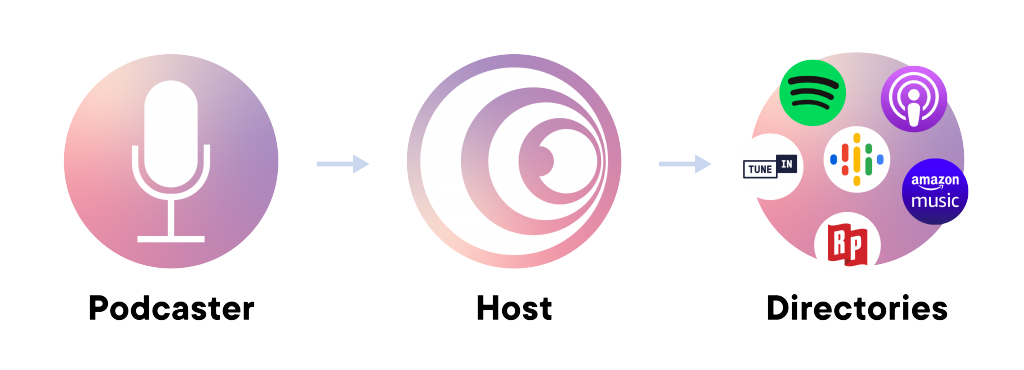
Your existing website host doesn’t have the tech needed to host a podcast either. Specifically, they don’t have the tools to compress your audio and distribute it to podcast networks or “podcatchers.” To achieve this distribution, you’ll need to work with a dedicated podcast host.
Top 11 Best Free Podcast Platforms
Now that we’ve discussed the finer details of podcast hosting, let’s see what you can achieve with the best free podcast hosting services.
- Spotify for Podcasters
- Acast
- Pinecast
- Podomatic
- Buzzsprout
- Spreaker
- Podbean
- Anchor
- Soundcloud
- RedCircle
- Sounder
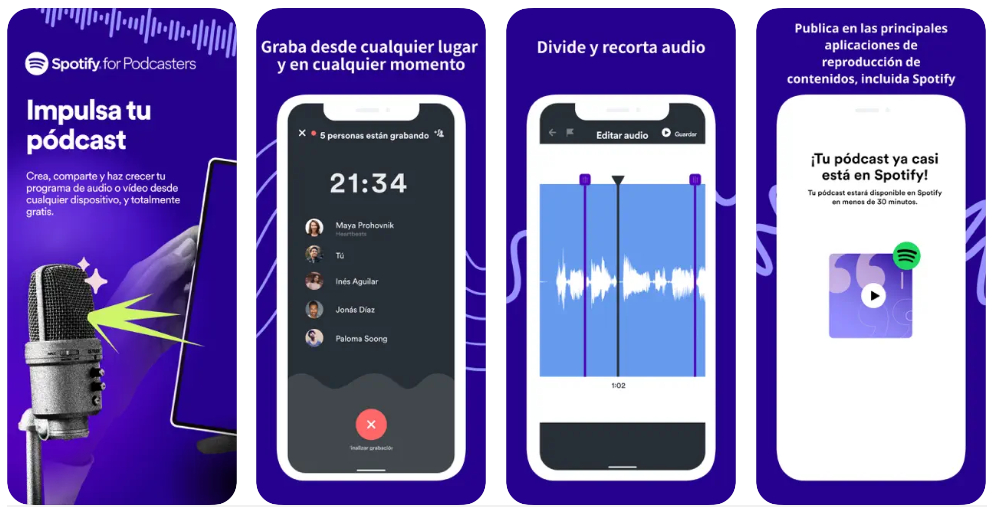
1. Spotify for Podcasters
⚙️ Features:
- # of episodes/storage space: Unlimited
- # of podcasts per account: 1
- Outbound bandwidth: Unlimited
- Website: ❌
- Monetization: ✅
- Distribution: One-click distribution
- Analytics: Advanced analytics built right into the Spotify for Podcasters dashboard
Spotify for Podcasters is a 100% free podcast host owned by Spotify. The service provides unlimited access to everything, including tools for recording and editing your podcast. You’ll even gain access to free libraries of music and sound effects that can be used to give your podcast a more professional feel.
Another big advantage of Spotify for Podcasters is access to the platform’s detailed analytics. Podcasters can easily access information about the number of people who listen to each podcast episode, what services people are using to listen, and where in the world your listeners are. You can also view a line graph that tracks listener trends over a weekly, monthly, or even daily period.
.jpg)
2. Acast
⚙️ Features:
- # of episodes/storage: Unlimited
- # of podcasts: 1
- Outbound bandwidth: Unlimited
- Website: Only available with paid plans
- Monetization: ✅ (via paid subscriptions and donations)
- Distribution: ✅
- Analytics: Advanced
Acast offers one of the most generous free plans on this list. There’s no limit to the number of episodes you can have, file sizes you can upload, or the number of times people can download your podcast. You’ll also get access to an easily edited podcast site.
Free users can also access marketing tools, like an AI transcription service and access to Podcastle, a tool that helps you record, edit, and mix your audio files.
Unfortunately, you won’t be able to run multiple podcasts on their free plan. However, it’s worth noting that the premium plans include direct integration with Patreon, one of the most popular tools for earning money on podcasts.
3. Pinecast
⚙️ Features:
- # of episodes/storage space: Unlimited uploads, 10 episodes available at a time
- # of podcasts: 2
- Outbound bandwidth: Unlimited
- Website: Only available with paid plans
- Monetization: ✅ (via tip jar)
- Distribution: ✅
- Analytics: Basic (more advanced options available with premium plans)
Pinecast earns its place on this list of the best free podcast hosts by offering wide distribution, unlimited bandwidth and downloads, and tip jar capabilities to all of its users, including folks on the free plan. You can also have up to 10 episodes, split between up to two podcasts, available through the free plan at any given time.
When you’re ready to go premium, you’ll find that Pinecast has a lot to offer. The Starter plan is available for $10 per month or $110 per year and includes unlimited shows, unlimited episodes, a podcast website, embeddable players, and premium analytics.
The one drawback of Pinecast is that it doesn’t include tools for recording or editing podcast episodes. You’ll need to use a separate program for the actual creation of your podcast.

4. Podomatic
⚙️ Features:
- # of episodes/storage: 6 hours/20 episodes
- # of podcasts: 1
- Outbound bandwidth: 15 GB/month
- Website: ❌
- Monetization: ✅ (via sponsorships)
- Distribution: ✅
- Analytics: Basic
Podomatic is one of the best free podcast hosting services around because it lets you record and edit your podcasts, and then quickly distribute them to a variety of podcast networks. The company also provides embeddable players for a wide variety of social networks and your website.
There is one way to monetize your podcast on a free Podomatic plan: you can get sponsorships through the Podcorn program. You can also get paid by your listeners through Patreon if you upgrade to the premium plan.
If you have plans to eventually upgrade to a paid account, it’s worth noting that Podomatic Pro is incredibly affordable, with plans starting at $2.99 per month (when billed annually).

5. Buzzsprout
⚙️ Features:
- # of episodes/storage space: 2 hours/month for up to 90 days
- # of podcasts: 1
- Outbound bandwidth: 250 GB
- Website: Only available with paid plans
- Monetization: ✅ (via ads)
- Distribution: ✅
- Analytics: Advanced
Founded over ten years ago, Buzzsprout is one of the oldest and most respected names in podcast hosting. Its main draw is automated file optimization and conversion. This makes it possible to plug virtually any file type into the Buzzsprout software and turn it into a high-quality podcast.
Another reason why Buzzsprout is on this list of the best free podcast hosting is the availability of integrations. You can combine Buzzsprout with a variety of popular tools, including advanced analytics tools and WordPress.
The one disadvantage of Buzzsprout is the limited storage space available on the free plan. This means you’ll need to have a plan for monetization, and the eventual switch to a paid hosting plan, if you host your podcast on Buzzsprout.

6. Spreaker
⚙️ Features:
- # of episodes/storage space: Unlimited
- # of podcasts: 1
- Outbound bandwidth: Unlimited
- Website: ❌
- Monetization: ✅ (via ads)
- Distribution: ✅ (one-click distribution)
- Analytics: Basic for 6 months (more on paid plans)
Spreaker is a high-quality podcast host with a plethora of advanced features, including episode scheduling and the ability to host live podcasts. Moreover, it lets you host unlimited episodes in the free plan.
Once you publish a podcast episode, Spreaker auto-uploads it to iHeartRadio, Spotify, and Apple Podcasts so you don’t have to. If you want to share it on other podcasting platforms, you need to submit it through the one-click distribution feature.
One limit of Spreaker’s free plan is that it only lets you monetize your podcast through ads. If you want access to more monetization options, you’ll need to invest in one of their paid plans.
Therefore, it’s a little bit more limited compared to some of the other best free podcast hosting options.
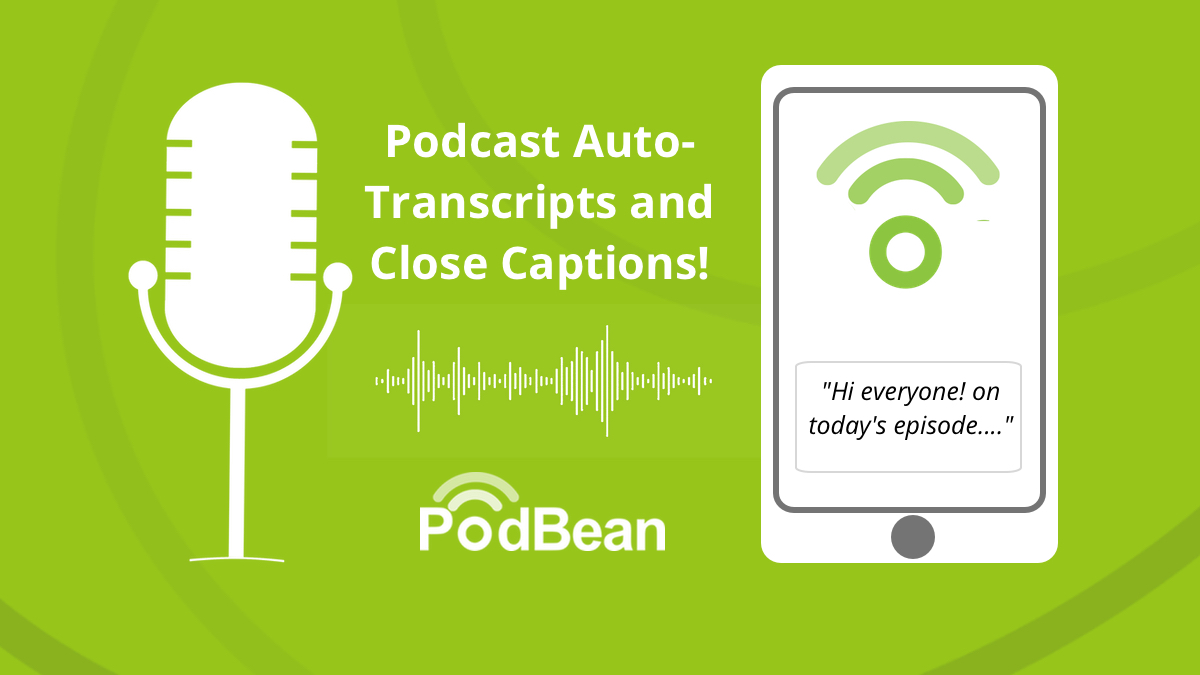
7. Podbean
⚙️ Features:
- # of episodes/storage space: 5 hours (500 MB) total
- # of podcasts: 1
- Outbound bandwidth: 100 GB/month
- Website: ✅
- Monetization: ❌
- Distribution: ✅
- Analytics: Basic
Podbean is a great podcast host with a limited free plan that lets you test their platform. You can upload episodes, create a simple website, and use integrations with email marketing tools and social media to perfect your promotion.
Another benefit of Podbean is the direct connection to the Podbean Audio Recorder app. This app lets you record, edit, and publish podcasts directly from your phone. There are versions available for both Android and iOS.

8. Anchor
⚙️ Features:
- Unlimited storage: no limit on the number of episodes you upload.
- Limited to one podcast per account.
- You own the rights to all of your content.
- One-step distribution to Spotify and other major platforms.
- IAB certified metrics & engagement insights.
- Podcast monetization: easily include promotions in your podcast with Ads by Anchor and get matched with viable sponsors.
- Include full tracks from Spotify in your podcast.
- Seamless video podcasting to Spotify with Riverside.
Unlike the above platforms, Anchor is completely free. In fact, their whole mission is to make podcasting as accessible as possible.
Other than easily being able to distribute to platforms like Spotify, you also get unlimited hosting, podcast advertising tools, and more. Recently Spotify also launched video podcasts on their platform and Anchor made sure to follow.
Anchor partnered with Riverside and with this new integration, you can seamlessly record on Riverside and publish straight to Spotify through Anchor.
:max_bytes(150000):strip_icc()/how-to-create-soundcloud-playlist-featured-a7f822b0047e4060a887cf24628abbfd.jpg)
9. Soundcloud
⚙️ Features:
- Upload up to 3 hours of audio.
- Maximum file size of 4GB.
- Accepts most file formats, with lossless file formats recommended.
- Basic analytics, although note that these are not IAB compliant.
- Fan donations
- Distribution is not that straightforward.
Soundcloud isn’t technically a podcast-dedicated hosting platform. It’s more of a streaming service, but you can still host your show and even use Soundcloud’s monetization tools for your podcast. With the basic plan, you can upload only a few hours of recording, but you can still get analytics among other features.
.jpeg)
10. RedCircle
The Role of Podcast Hosting
1. Reliable Storage: Podcast hosting platforms, such as Free Podcast Platform offer dedicated storage space for your audio files. This is essential for maintaining the quality of your episodes without compromising on download speeds or performance. The hosting service ensures that your content is consistently available to your audience.
2. Bandwidth Management: Hosting providers handle the bandwidth required to deliver your podcast episodes to listeners. As your audience grows, the demand for bandwidth increases. A reliable hosting service manages this seamlessly, preventing issues like slow loading times or episodes becoming unavailable due to exceeding bandwidth limits.
3. Distribution to Podcast Directories: Podcast hosting platforms automatically distribute your episodes to popular podcast directories like Apple Podcasts, Spotify, and Google Podcasts. This ensures that your content reaches a broader audience without manual submissions to each platform.
4. Analytics and Insights: Hosting services provide valuable analytics and insights into your podcast’s performance. Metrics such as listener demographics, geographic locations, and episode download statistics help you understand your audience better. This information is instrumental in refining your content strategy and targeting specific listener interests.
By investing in a reliable podcast hosting service, you ensure that your podcast is accessible, performs well, and reaches a wider audience. The features provided by hosting platforms streamline the technical aspects of podcasting, allowing you to focus on creating and sharing your content with the world.
What to Look for in Free Podcast Platforms
Choosing the right podcast platform is a crucial decision for any aspiring podcaster. With the rise of podcasting, there is an array of free options available, each offering unique features. To ensure your podcasting journey starts off on the right foot, consider the following factors when selecting a free podcast platform.

Features to Consider
1. Hosting Capabilities
A reliable podcast platform should offer robust hosting capabilities. Ensure the platform provides sufficient storage space for your episodes without compromising on audio quality. Look for features like unlimited bandwidth to accommodate potential growth in your audience.
2. Analytics and Metrics
Understanding your audience is vital for improving your podcast. Opt for a platform that provides detailed analytics and metrics. Insights into listener demographics, geographic locations, and episode performance can guide your content strategy and help you tailor your podcasts to your audience.
3. Monetization Options
While the platform may be free, consider its potential for monetization. Some platforms offer built-in monetization features, such as sponsorship opportunities or listener donations. Evaluate these options to ensure that your podcasting efforts can become financially sustainable over time.
4. Ease of Use
A user-friendly interface is essential, especially if you’re new to podcasting. Look for platforms with intuitive navigation, straightforward episode uploading, and easy customization options for your podcast profile. A platform that simplifies the technical aspects allows you to focus on creating compelling content.
How to Get Started with Free Podcast Platform
Embarking on your podcasting journey with Free Podcast Platform is a breeze. Let’s walk through the steps to set up your podcast and share your voice with the world:
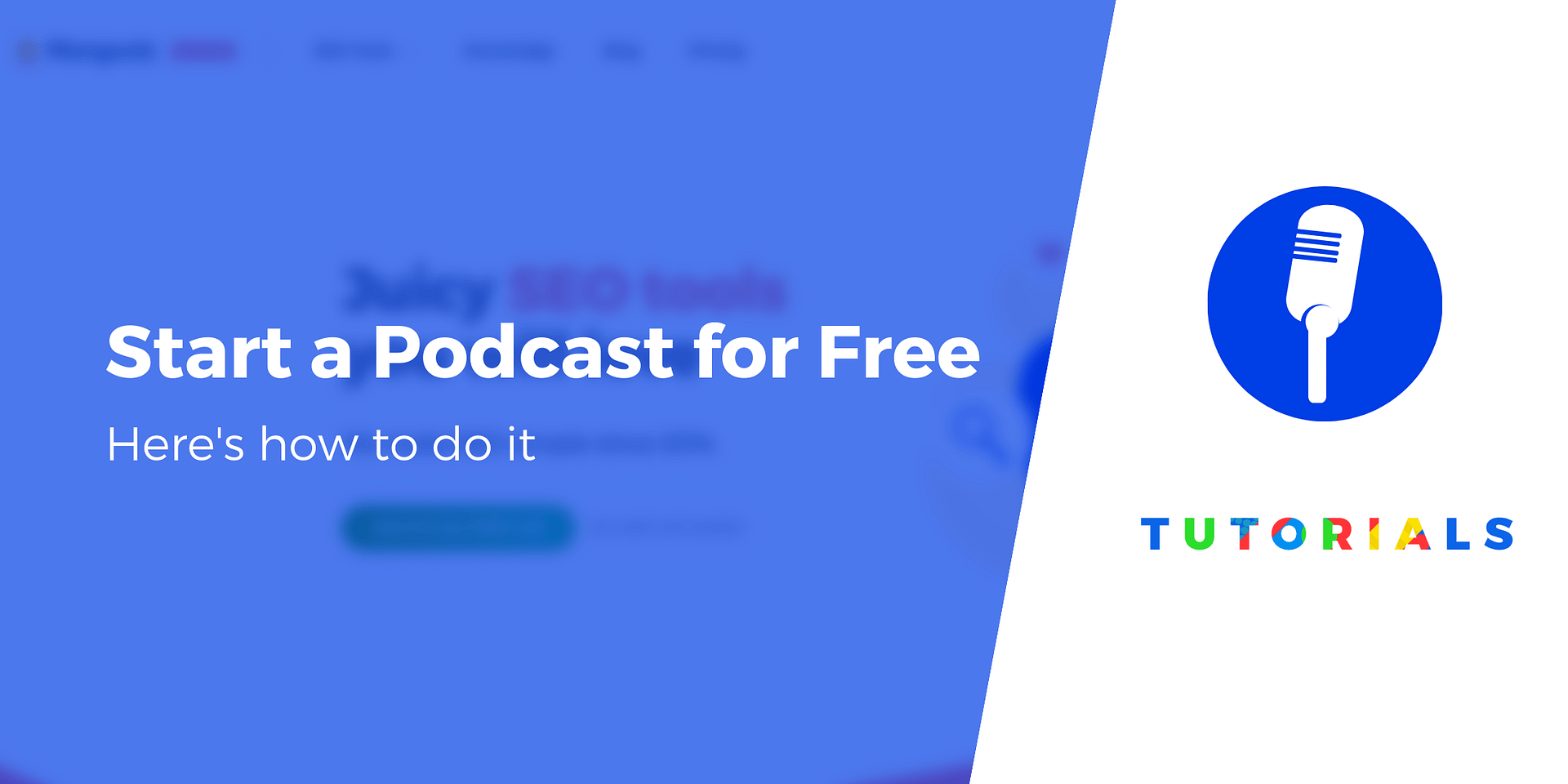
1. Navigate to a Free Podcast Platform Website:
- Open your web browser and go to the official Free Podcast Hosting platforms.
2. Sign Up for an Account:
- Look for the “Sign Up” or “Get Started” button and click on it.
- Fill in your details, including your email address, desired username, and a secure password.
3. Verify Your Email:
- Check your email inbox for a verification message.
- Click on the verification link to confirm your account and proceed.
4. Log In to Your Account:
- Return to the Free Podcast Hosting Website and log in using your newly created credentials.
5. Create Your Podcast Channel:
- Once logged in, explore the dashboard to find the “Create New Podcast” or similar option.
- Enter your podcast’s name, description, and any other relevant details.
6. Upload Your First Episode:
- Look for the “Upload Episode” or “Add New Episode” button.
- Upload your first episode by selecting the audio file from your computer.
- Add a catchy title, and engaging description, and set the release date.
7. Customize Your Podcast Channel:
- Personalize your podcast channel by choosing a theme, adding cover art, and configuring settings to match your style.
8. Optimize for Search Engines:
- Maximize your podcast’s discoverability by incorporating relevant keywords into your title, description, and tags.
9. Preview Your Podcast:
- Before making your podcast public, use the preview feature to ensure everything looks and sounds just right.
10. Publish Your Podcast:
- When you’re ready, hit the “Publish” button to make your podcast live and accessible to your audience.
11. Share and Promote:
- Utilize the sharing features provided by [Free Podcast Platform] to promote your podcast on social media and other platforms.
- Encourage friends, family, and followers to listen, subscribe, and leave feedback.
By following these steps, you’ve successfully set up your podcast on Free Podcast Platform. Now, your unique voice is ready to be heard by audiences around the globe.
Benefits of Using Free Podcast Sites
Exploring the world of podcasting is an exciting venture, and when it comes to hosting your podcast, free podcast sites offer numerous advantages. Let’s delve into the benefits that make these platforms an excellent choice for both novice and experienced podcasters:
1. Cost Savings:
- No Subscription Fees: As the name suggests, free podcast sites eliminate the need for monthly subscription fees. This is particularly advantageous for those starting on a tight budget or exploring podcasting as a hobby.
2. Accessibility and Reach:
- Wider Audience Reach: Free podcast sites often come with built-in distribution to popular podcast directories like Apple Podcasts, Spotify, and Google Podcasts. This ensures that your content reaches a broad audience without additional effort on your part.
3. Community Building:
- Engagement Features: Many free podcast sites incorporate community-building features, such as comment sections, listener reviews, and social media integration. These tools facilitate interaction with your audience, fostering a sense of community around your podcast.
4. Analytics and Insights:
- Understand Your Audience: Free podcast sites provide analytics tools that offer insights into listener demographics, geographic locations, and episode performance. This data empowers you to refine your content strategy based on your audience’s preferences.
5. Ease of Use:
- User-Friendly Interfaces: Free podcast sites are designed with user-friendliness in mind. Intuitive interfaces make it easy to upload episodes, customize your podcast profile, and navigate through various settings without a steep learning curve.
6. Monetization Opportunities:
- Explore Revenue Streams: While free, many platforms offer opportunities for monetization. This could include sponsorships, listener donations, or integrations with advertising networks, allowing you to turn your passion into a potential revenue stream.
7. Scalability:
- Accommodate Growth: Free podcast sites are often scalable, accommodating the growth of your podcast over time. This scalability ensures that the platform can handle increased storage and bandwidth requirements as your audience expands.
8. Technical Support:
- Access to Support: Even with free plans, podcast sites typically provide some level of technical support. This can be valuable for troubleshooting issues or getting assistance with any platform-related queries.
Embracing free podcast sites offers a host of benefits, from saving costs to building a community around your content. As you embark on your podcasting journey, consider these advantages to make an informed decision on the platform that best aligns with your goals and aspirations.
Potential Challenges and How to Overcome Them
While diving into the world of podcasting is an exciting endeavor, it’s essential to be aware of potential challenges that may arise along the way. Here are some common hurdles podcasters might face and strategies to overcome them:
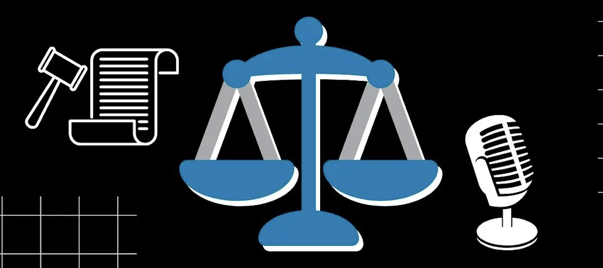
1. Storage Limitations:
- Challenge: Free podcast hosting platforms often come with storage limitations, restricting the number and size of episodes you can upload.
- Solution: Regularly assess your storage usage, and consider archiving older episodes. If your podcast grows, explore options to upgrade to a paid plan for increased storage.
2. Managing Bandwidth Issues:
- Challenge: Bandwidth limitations can result in slow loading times or episodes becoming temporarily unavailable, especially during traffic spikes.
- Solution: Optimize your podcast episodes for efficient streaming. Consider a content delivery network (CDN) to distribute bandwidth and reduce the strain on your hosting platform.
3. Monetization on Free Platforms:
- Challenge: While many free podcast hosting platforms offer monetization opportunities, the options may be limited compared to paid platforms.
- Solution: Explore various revenue streams such as listener donations, affiliate marketing, or sponsorships. Additionally, consider transitioning to a paid hosting plan for advanced monetization features.
4. Technical Issues and Support:
- Challenge: Free plans may offer limited technical support, leaving podcasters with potential challenges in resolving technical issues.
- Solution: Utilize online forums and communities for peer support. Explore the available documentation and tutorials provided by the hosting platform. Consider upgrading to a paid plan for enhanced support.
5. Competition in Podcast Directories:
- Challenge: With the proliferation of podcasts, standing out in crowded directories can be challenging.
- Solution: Craft compelling episode titles and descriptions. Leverage social media to promote your podcast. Collaborate with other podcasters for cross-promotion. Consistently produce high-quality, niche-specific content.
6. Adherence to Platform Guidelines:
- Challenge: Free hosting platforms may have stricter guidelines on content, limiting creative freedom.
- Solution: Familiarize yourself with platform guidelines before creating content. Balance creativity with adherence to guidelines to ensure your podcast remains within the hosting platform’s terms.
7. Understanding Analytics:
- Challenge: Interpreting podcast analytics may be daunting for beginners.
- Solution: Take time to understand the analytics provided by your hosting platform. Look for tutorials or online resources that break down key metrics. Experiment with changes based on analytics feedback to refine your content strategy.
Navigating these challenges is a natural part of the podcasting journey. By staying informed and proactive, you can overcome hurdles, ensuring a smoother experience as you grow your podcast and engage with your audience.
Conclusion
Embarking on your podcasting journey, whether for passion or profession, opens up a world of possibilities. As we wrap up this exploration of free podcast platforms and the intricacies of podcasting, let’s reflect on key takeaways:
Choosing the Right Platform Matters:
Selecting a podcast hosting platform is a pivotal decision. Free podcast sites offer a fantastic starting point for those mindful of budget constraints. Assessing features, scalability, and user-friendliness is crucial to find the perfect fit.
Embracing the Benefits:
The benefits of free podcast sites, from cost savings to wider audience reach and engagement, are substantial. Leverage these platforms to not only share your voice but also build a community around your content.
Navigating Challenges:
Every podcaster encounters challenges, whether it’s managing storage limitations, grappling with bandwidth issues, or seeking effective monetization. Recognize these hurdles as opportunities to refine your skills and adapt your strategy.
Scalability is Key:
As your podcast grows, scalability becomes paramount. Ensure your chosen platform can seamlessly accommodate the expanding needs of your audience, both in terms of storage and bandwidth.
Community Building:
Podcasting isn’t just about content; it’s about building a community. Engage with your audience, respond to feedback, and foster a sense of connection. Utilize the features provided by your platform to create an interactive and supportive community around your podcast.
Continuous Learning:
The podcasting landscape evolves, and staying informed is key. Keep abreast of industry trends, new features, and best practices. Join podcasting communities, participate in discussions, and continue honing your skills.
Strive for Excellence:
Whether you’re podcasting for fun or with a professional goal in mind, strive for excellence. Craft compelling content, pay attention to production quality, and consistently refine your approach based on analytics and listener feedback.
In the dynamic world of podcasting, your unique voice adds value. As you navigate the opportunities and challenges, remember that each episode is an opportunity to connect, inspire, and leave a lasting impact. With the right mix of passion, dedication, and strategic choices, your podcast has the potential to resonate with audiences worldwide.
Happy podcasting!



